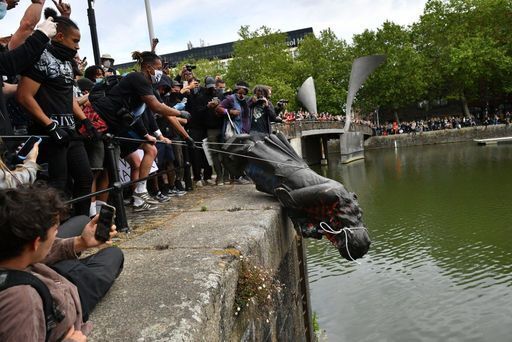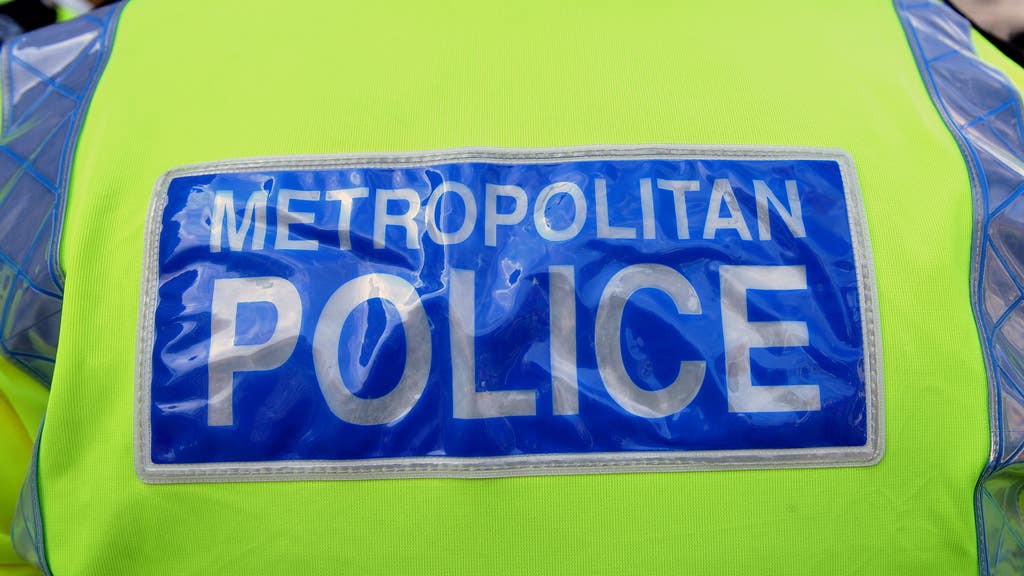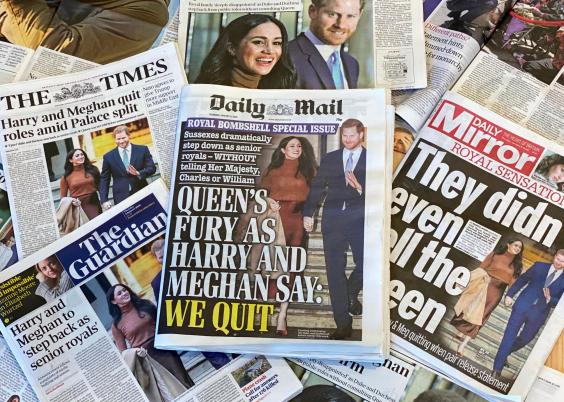Britain has a serious problem with racism, say voters in new survey
Exclusive: New research suggests many people of colour believe UK still has some way to go on racism. By Nadine White


A significant proportion of the British public believe the UK has yet to face up to its problem with racism, an exclusive survey suggests.
From the government and police to the media and royal family, many voters believe these institutions are racist and the number increases markedly among Black, Asian and minority ethnic (Bame) respondents, according to a poll by BMG Research for The Independent.
As calls for the government to publish the race commission’s report into inequalities intensify, four months after the initial publication deadline, the research found that close to a third (31 per cent) of minority ethnic respondents think the Conservative Party is racist.
By contrast, some 20 per cent of Britons believe this, suggesting a difference in perspectives stemming from life experiences.
One in three Britons (32 per cent) think police forces are racist, while this number rose (to 42 per cent) among ethnic minority respondents.
Read more:
The poll suggested that nearly a third (30 per cent) of ethnic minority Britons think tabloid newspapers are racist, while more than a quarter (28 per cent) of the general population hold this view.
Asked about historic statues, monuments, and street names and the UK’s colonial past, almost half of minority ethnic Britons polled said they wanted to see these removed, compared with one fifth (22 per cent) of the general population.
One in four Bame Britons think the royal family is racist, the poll suggested, and by contrast a lesser amount, 22 per cent, of the general population held this view. This follows the royal family being thrust into the centre of a debate about racism, after Oprah Winfrey’s interview with Meghan Markle and Prince Harry.
The Runnymede Trust, an equalities think tank, has challenged racism in Britain for over 50 years and its director, Halima Begum, said the organisation at times felt research into discrimination had “fallen on deaf ears”.
“Given the implications of this survey, the significant number of the British people, regardless of their ethnicity, appear united in their agreement that many institutions of state are structurally racist,” she told The Independent.
“One racist institution is one too many. [After all,] we are talking about the public bodies that every single one of us relies on every day of our lives for our health, education, governance and safety.
Shadow equalities minister Marsha De Cordova has called for the Race Commision’s report, led by former charity boss Tony Sewell, to be published as soon as possible, warning that “tackling structural racism in the United Kingdom cannot wait”. It was originally due to be published by the end of 2020.
“The fact that the Sewell inquiry has been repeatedly delayed raises serious concerns that its findings are being carefully ‘stage-managed’ by the government in order that a whitewashed final report concludes institutional racism simply does not exist in the UK,” said Ms Begum.

She added: “Fortunately, this survey suggests that the British people will be highly sceptical where any such finding emerges from the Sewell report, and that the government and its author will receive the short shrift they deserve in such an event.”
Dr Begum said it was challenging to have these conversations in a national media landscape that appears for the most part unaligned with British public sentiment on racism.
“These polls results show how out of touch the Conservatives are on race equality,” Ms de Cordova told The Independent.
“They are more interested in stoking division and fear than tackling systemic disadvantage for Black, Asian and ethnic minority people.
“Boris Johnson should stop denying the existence of structural racism in our society and start tackling the racial injustice and discrimination that is holding people back.”
Multiple forces, including the Metropolitan Police and Avon & Somerset Police, have come under fire in recent days for their handling of protests, which has fuelled concerns about how minoritised groups are treated.
Remi Joseph-Salisbury, who is a part of Northern Police Monitoring Project (NPMP), said: “Britain still has an incredibly long way to go in facing up to its racist underpinnings.
“A key starting point would be to recognise that racism isn’t only interpersonal, but is structural, institutional and state-driven.
“That is, racism is deeply embedded and reproduced in key social institutions; schooling, policing, employment, housing, and more. The government and the state are key factors in maintaining the racist system.
“Facing up to racism would require structural and institutional change to transform our societies, and there is little evidence that those in power are ready to do that.

“The governmental attacks on Critical Race Theory and Black Lives Matter show that those in power have no interest in tackling racism, and there is little evidence that the opposition do either.”
Dr Joseph-Salisbury said the government’s efforts to pass the “deeply troubling” police, crime, sentencing and courts bill, also demonstrated disregard for how communities of colour will be most harshly affected.
Sir Keir Starmer, the Labour leader, told The Independent last week that the proposed legislation was “concerning”, while campaigners have written to the government calling on ministers to review the bill, warning it could further entrench racial inequalities.
The survey comes after the Duke and Duchess of Sussex claimed in an explosive interview with Oprah Winfrey that a member of the family – not the Queen or the Duke of Edinburgh – had voiced concerns about how dark their son Archie’s skin tone may be.
During the conversation, Meghan – the first mixed-race person to marry into the modern monarchy – suggested her son was not made a prince because of his Black heritage and would not be provided with security either.
Robert Struthers, head of polling at BMG, said: “Our polling finds as many as one in five Britons describe the royal family as racist, a figure that rises significantly for those in ethnic minority groups.
“Elsewhere, our polling shows a comfortable majority continue to support the UK having a monarchy, though support drops to less than half among ethnic minorities – a persistent trend evident on most questions on this topic.
“Despite the focus on this issue following Meghan and Harry’s interview, the royal family is by no means alone. In fact our polling shows that a lower proportion describe the royal family as racist than various other institutions.
“A near equal number, for example, describe the Conservative Party as having an issue with racial discrimination, with even higher proportions describing social media, the printed press, and the police as having a problem on this front.”
More than double the amount of non-white people approve of Meghan, at 45 per cent, than white people (21 per cent), the poll found.
And the BMG poll suggested that if a person voted against leaving the EU, they were statistically more likely to think the royal family is racist.
The 2016 campaign to leave the European Union heavily featured the reclamation of British “sovereignty”.
One third of Britons who think the royal family is racist voted to remain in the Brexit referendum, while 7 per cent of Leavers believe this.
It emerged last week that Buckingham Palace was considering the appointment of a diversity chief in an admission that “more needs to be done” to address concerns of racism within the establishment. The Sussexes’ comments on race will be taken on board as part of the process, it is understood.
The findings come after anti-racism campaigners called for the royals to lose their exemption under race equality law and be “brought into line with the rest of the public sector” following Meghan and Harry’s racism allegations.
Buckingham Palace declined to issue a statement on the poll’s findings when approached by The Independent. Downing Street has also been approached for comment.
The National Police Chiefs Council (NPCC) on Monday launched a campaign to recruit an independent chair to shape a new plan of action on inclusion and race in policing to address long-standing challenges in the relationship between Black people and the police.
BMG Research interviewed a representative sample of 1,498 British adults online between 16-19 March
Join our commenting forum
Join thought-provoking conversations, follow other Independent readers and see their replies
Comments